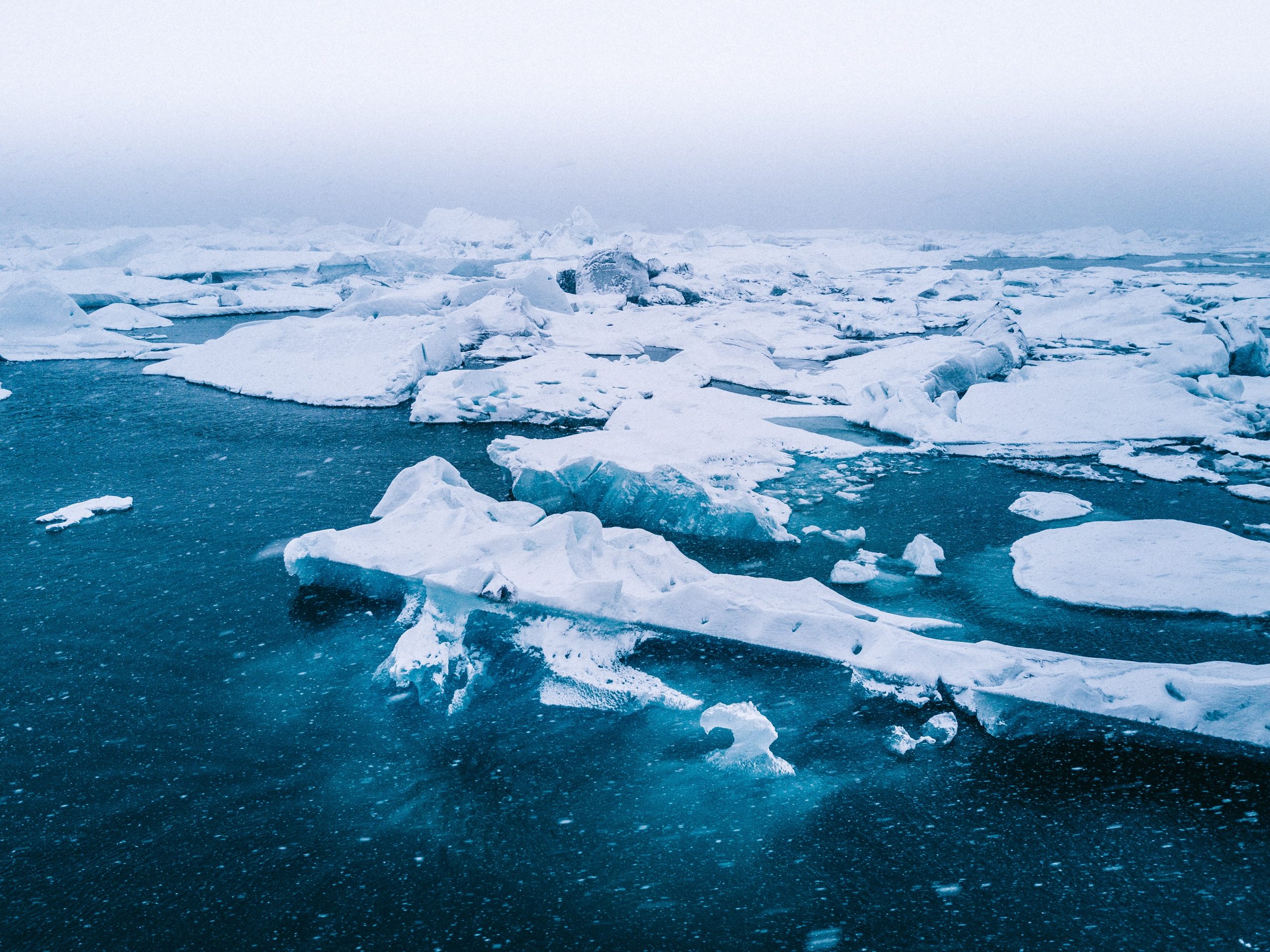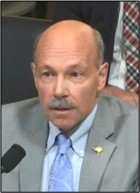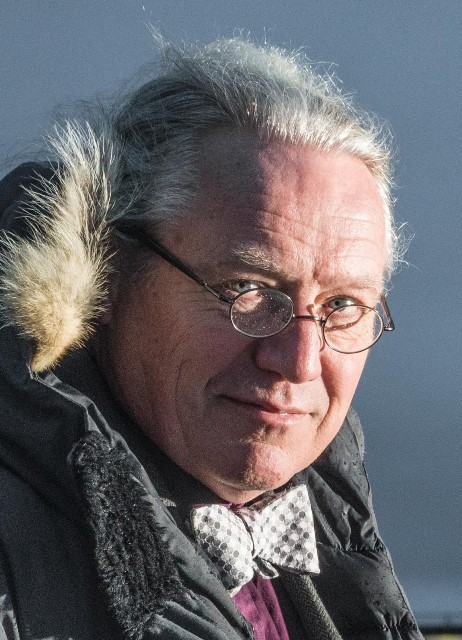The AE-Bergen Hub organized a side event at the Arctic Frontiers conference in Tromsø February 3rd, titled “The Future of Arctic Science and Science Diplomacy”. The backdrop is the freezing of science diplomacy efforts during the sanctions in the wake of Russia’s invasion in Ukraine.
The project on Science Diplomacy in the Arctic is commissioned by the Academia Europaea Bergen Knowledge Hub, and will include a report to be published later in the year. Political scientist Ole Øvretveit is preparing the report, and also planned the Arctic Frontiers conference side event with the Hub.
A recording of the event is available here.
– It is important to make clear that this event is not seeking to criticize the western governments for sanctioning in principle. Aggressive states going to war should be penalized anywhere, not least here in our neighborhood.
– Still, there have been strong voices questioning the sanctions against science collaboration and the procedures for making these decisions, like the International Science Council, calling for more involvement from the scientific community in the processes leading to the political decisions. Then again, there are also those calling for stronger sanctions, Øvretveit said in his introduction.

The Future of Arctic Science and Science Diplomacy is the topic of a side event organized by Academia Europaea partners during the Arctic Frontiers conference 2023.
Organizing institution(s):
- University of Bergen
- Academia Europaea
- Norwegian Polar Institute
- The Norwegian Academy of Science and Letters (DNVA)
- University of Tromsø
Introductory remarks
- Ole Øvretveit, Manager of Arctic Science diplomacy project, Academia Europaea
- Dag Rune Olsen, Rector, University of Tromsø
- Lise Øvreås, President of The Norwegian Academy of Science and Letters
- Ole Arve Misund, Executive Director, Norwegian Polar Institute
- Nicole Biebow, Chair of The European Polar Board//Alfred Wegner Institute (digital)
Panel debate – Chair: Ole Øvretveit
- Eystein Jansen, Vice President, European Research Council
- Mike Sfraga, Chair, US Arctic Research Commission
- Clara Ganslandt, Special Envoy for Arctic Matters to the EU
- Petteri Vuorimäki, Finland’s Ambassador for Arctic Affairs
- Lars Kullerud, President, UArctic
Session description:
War, pandemic, climate change, biodiversity loss, energy crisis and geopolitical tensions are now part of our everyday life, especially for people living in or near the Arctic. Scientific and evidence-based state-to-state cooperation have historically been intertwined and of high importance in the Arctic, and even in periods when relationships have been strained, collaboration and dialogue has remained operative in this region.
This tight connection between science and diplomacy has traditionally helped reduce geopolitical tensions and facilitated international resource management. However, after Russia’s invasion in Ukraine, the Russo-western relationship has entered an ice-cold face. Due to the war and international sanctions, science, science-based decisions, and science diplomacy suffers severely. Without access to Russian scientists and territory, scientific data become incomplete, creating additional crisis. Reduced international Arctic science collaboration may have severe consequences for climate research and other important scientific topics like social science and ocean ecosystems. The event will highlight and debate following questions:
- What is the status of Arctic Science diplomacy and collaboration?
- What are the effects of war on scientific collaborations in the north?
- What are the effects of the war on volume and value of arctic science?
- What avenues can we foresee for Arctic Science and science diplomacy?

Dr. Michael Sfraga
Dr. Michael Sfraga is chair of the United States Arctic Research Commission. Prior to his current appointments, he was the founding director of the Polar Institute and concurrently served as director of the Global Risk and Resilience Program at the Woodrow Wilson International Center for Scholars in Washington, DC. Sfraga also serves as chair and distinguished fellow in the Polar Institute, where his research and public speaking focus on Arctic policy. An Alaskan and a geographer by training, Sfraga studies the changing geography of the Arctic and Antarctic landscapes, Arctic policy, and the impacts and implications of a changing climate on political, social, economic, environmental, and security regimes in the Arctic. Sfraga served as distinguished co-lead scholar for the U.S. Department of State’s inaugural Fulbright Arctic Initiative from 2015 to 2017, a complementary program to the U.S. Chairmanship of the Arctic Council; he held the same position from 2017 to 2019. He served as chair of the 2020 Committee of Visitors Review of the Section for Arctic Science (ARC), Office of Polar Programs, National Science Foundation, and is a member of the Scientific Advisory Council of the Finnish Institute for International Affairs. Sfraga previously held several academic, administrative, and executive positions, including vice chancellor, associate vice president, faculty member, department chair, and associate dean. He earned the first PhD in geography and northern studies from the University of Alaska Fairbanks, where he is affiliate faculty in the International Arctic Research Center.

Nicole Biebow
Nicole Biebow is chair of The European Polar Board (EPB), an independent organisation focused on major strategic priorities in the Arctic and Antarctic. EPB Members include research institutes, logistics operators, funding agencies, scientific academies and government ministries from across Europe. She received her PhD in Marine Geology at GEOMAR in Kiel in 1996. She has long-standing experience in the management of international projects and coordination of international consortia. Since 2010, she has led the International Cooperation Unit at the Alfred Wegener Institute, Helmholtz Centre for Polar and Marine Research (AWI). She is responsible for all international relations of the AWI and maintains an extensive network of contacts in the European and international science and policy communities. Nicole is the Coordinator of the EU coordination and support action EU-PolarNet 2, having previously served as Executive Manager of EU-PolarNet (1), as well as being Coordinator of the EU-funded Arctic Research Icebreaker Consortium (ARICE).

Clara Ganslandt
Clara Ganslandt is Special Envoy for Arctic Matters at the European External Action Service (EEAS), the European Union’s diplomatic service, since September 2022. Ganslandt’s role is to drive forward the EU’s Arctic policy, enhance cooperation with partner countries and other interested parties, improve coordination between the different EU institutions, mainstream Arctic issues in policy-making, and promote and publicise the EU’s Arctic engagement externally. She was born in Sweden and entered the Swedish diplomatic service in 1990. Following Sweden’s accession to the EU in 1995, she joined the first structure set up in the General Secretariat of the Council of Ministers of the EU to build the EU Foreign and Security Policy (CFSP); and she has since then worked in EU external relations in various functions. She holds a Master of Laws (LLM) from the Lund University in Sweden, and also studied at the College of Europe in Bruges, and at the Institut d’Etudes Politiques in Paris.

Petteri Vuorimäki
Petteri Vuorimäki is Finland’s Ambassador for Arctic Affairs since September 2019, and Finnish Senior Arctic Official in the Arctic Council. Until the fall of 2022 also Ambassador for Antarctic Affairs. Before his current post he served in diplomatic postings for Finland in Moscow, Pristina, Strasbourg and Brussels. Before his MFA career he worked for the International Organization for Migration in Geneva (Coordinator for Russia and the CIS Countries) and Helsinki and held various positions in the Finnish Labour Administration. In Brussels, he worked in the Finnish Permanent Representation to the EU in charge of the COEST Working Party (Russia, CIS, Arctic and Northern Cooperation, European Neighborhood Policy, Black Sea cooperation), in the External Relations Directorate General of the European Commission (Unit for Relations with Russia) and in the European External Action Service, where he in 2011 was the first permanent chairperson for the COEST and COSCE Working Parties and subsequently as from 2015 a Senior Russia Expert. In Brussels his primary fields of interest and responsibility were EU-Russia relations, Union’s Eastern Neighborhood and regional cooperation structures in the North, including the Arctic cooperation. He was also Chair of the Vision Group for the Council of the Baltic Sea States, – a group of independent experts which submitted a report to the CBSS Ministerial meeting on the future of the CBSS and the Baltic Sea region cooperation.

Lise Øvreås
Lise Øvreås is the president of the Norwegian Academy of science and letters, since 2022. She was the scientific director for University of Bergen`s strategic SDG initiative Ocean Sustainability Bergen from 2019 – 2021. She holds a PhD in microbial ecology from University of Bergen in 1998, where she since 2007 has been professor in geomicrobiology. She was central in applying and establishing the Center of Excellence (CoE) in Geomicrobiology at UiB in 2007 and led the research topic “The deep Biosphere” for 5 years. She served as dean of research at the faculty for mathematic and natural sciences from 2009 – 2015. She is also member of The Norwegian Academy of Technological Sciences and Academia Europaea. She holds an associate professor position at University Centre at Svalbard since. Her research focus on microbial processes and functions along environmental gradients with special emphasis on climate change, permafrost, extreme environments and biodiversity.

Dag Rune Olsen
Dag Rune Olsen is rector of UiT The Arctic University of Norway, a position he took in 2021. Prior that he served as dean and later rector at the University of Bergen. Olsen is a professor of medical physics and holds a PhD from the University of Oslo. He served as head of research at The Norwegian Radium Hospital in Oslo and professor at University of Oslo until he took up a position as dean at the Faculty of Mathematics and Natural Sciences, University of Bergen. Professor Olsen has served as chair of Universities Norway (the Norwegian rectors conference) and as member of the research policy working group of European University Association (EUA). He chairs the board of the Nordic Institute of Studies of Innovation, Research and Education and serves on the board of cultural institutions in Norway. Olsen has been awarded with The Breur Award for his research, is elected member of The Norwegian Academy of Technological Sciences the Academia Europaea of which he was also presented with the Presidents Merit Award in 2021. He is also an honorary professor at the Shandong University.

Eystein Jansen
Eystein Jansen holds a PhD in Earth Science from the University of Bergen where he since 1993 is professor of palaeoclimatology. Jansen was the founding director of the Bjerknes Centre for Climate Research, which he led for 13 years. Jansen is presently Academic Director for the Academia Europaea Bergen Knowledge Hub and is vice director for the interdisciplinary SapienCE Centre, on Early Sapiens behaviour at the University of Bergen. Jansen is Vice President of the European Research Council (ERC) and a member of Academia Europaea, the Norwegian Academy of Science and Letters, The Norwegian Academy of Technological Sciences and the Norwegian Scientific Academy for Polar Research. Jansen was in 2019 awarded the Brøgger prize and the Meltzer prize for excellence in research. His research has primarily dealt with the influence of changes in ocean circulation on climate and on natural climate changes of the past and present.

Ole Arve Misund
Ole Arve Misund is the Director of the Norwegian Polar Institute since 2017. He has previously been Managing Director at National Institute of Nutrition and Seafood Research and at the Norwegian University Centre in Svalbard (UNIS). He worked for a number of years at the Institute of Marine Research, where he was, among other things, director of research from 2000 – 2012. He was director of the University Center in Svalbard from 2012 – 2016. In 2015, Misund was appointed director of the National Institute for Nutrition and Seafood Research (NIFES), which in 2018 was merged into the Institute of Marine Research. Misund is chairman of the board for marine infrastructure at Gothenburg University, and on the board of the Nansen Center in Bergen. Misund holds a PhD in Fisheries Biology from the University of Bergen. Misund is Adjunct Professor on climate effects in the polar regions at the Geophysical institute at the University of Bergen.

Lars Kullerud
Lars Kullerud is the president of the University of the Arctic (UArctic). He has had the pleasure to take part in the journey of developing the Universty of the Arctic (UArctic) since May 2002. UArctic – a “university without walls” – was announced in the 1998 Arctic Council Iqaluit Declaration, and has grown to a membership origination with more than 200 Higher Education Institutions from the circumpolar north and beyond. The members of UArctic carry out concrete cooperation in Education and Research in and for the Arctic through UArctic’s more than 60 Thematic Networks and Institutes as well as other forms of cooperation. Before joining the UArctic team, Lars Kullerud was the Polar Programme Manager for GRID-Arendal, the UN-Environment (UNEP) Key Polar Centre. His academic background is in Precambrian Geology and Isotope Geochemistry, geostatistics, petroleum resource assessments, as well as assessments of the Arctic environment. Lars has authored or co-authored several academic publications on Arctic issues, in environmental sciences and geosciences. Lars Kullerud is Honorary Professor at North Eastern Federal University (Yakutsk) and Honorary Doctor at Northern Arctic Federal University (Arkhangelsk).

Ole Øvretveit
Ole Øvretveit is the project manager on the Arctic Science Collaboration and diplomacy project at the Academia Europaea Bergen Hub. He served as Director of Arctic Frontiers for eight years through 2020, building Norwegian and international partnerships for this global scientific conference on economic, societal and environmental sustainable growth in the north. Among his initiatives is the Memorandum of Understanding that he signed on behalf of Arctic Frontiers to enable the international, interdisciplinary and inclusive contributions in this second volume of the Informed Decision making for Sustainability book series. Subsequently, Mr. Øvretveit served as Director of Science to Policy for the Sustainable Development Goals at the University of Bergen, where he received his master’s degree in Comparative Politics. Ole Øvretveit has also provided leadership with Initiative West, a think tank focusing on sustainable ocean economy, societal growth and the green transition from the west coast of Norway.
